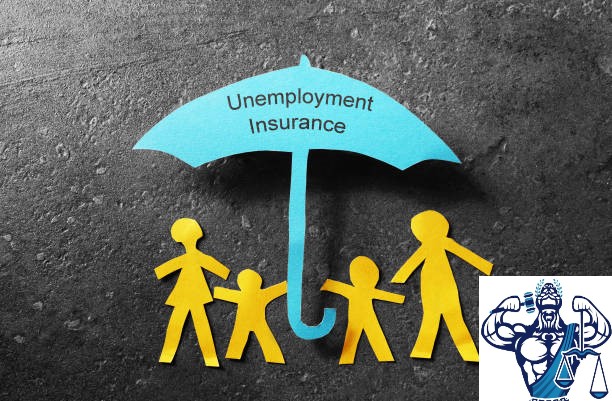Here at the Law Office of Vincent Miletti, Esq. and the home of the #UnusuallyMotivated movement, we take pride as a resilient and dependable legal services firm, providing such services in both a traditional and online, web-based environment. With mastered specialization in areas such as Employment and Labor Law, Intellectual Property (IP) (trademark, copyright, patent), Entertainment Law, and e-Commerce (Supply Chain, Distribution, Fulfillment, Standard Legal & Regulatory), we provide a range of legal services including, but not limited to traditional legal representation (litigation, mediation, arbitration, opinion letters and advisory), non-litigated business legal representation and legal counsel, and unique, online legal services such as smart forms, mobile training, legal marketing and development.
Still, here at Miletti Law®, we feel obligated to enlighten, educate, and create awareness, free of charge, about how these issues and many others affect our unusually motivated® readers and/or their businesses. Accordingly, to achieve this goal, we have committed ourselves to creating authoritative, trustworthy, & distinctive content. Usually, this content is featured as videos posted on our YouTube Channel https://www.youtube.com/channel/UCtvUryqkkMAJLwrLu2BBt6w and blogs that are published on our website WWW.MILETTILAW.COM. With that, the ball is in your court and you have an effortless obligation to subscribe to the channel and sign up for the Newsletter on the website, which encompasses the best way to ensure that you stay in the loop and feel the positive impact of the knowledge bombs that we drop here!
As the authoritative force in Employment Law, it only seemed right to introduce one of the many upcoming series in which we introduce a variety of topics that looks to educate and deliver in a manner that only Miletti Law® can. To that end, this blog is an introduction and Part I of a new series on “Employment-Based Adjustment of Status.” As a legal firm specializing in, among other legal areas, Employment and Labor Law, we have been creating a diverse but focused range of content to educate, train, keep you informed, and ensure that you, our unusually motivated® readers, stay ahead of the game in matters related to the labor law. Again, this is the primary reason we have dedicated a good percentage of our blogs to looking at every nook and cranny of Employment and Labor Law.
Through this series, we aim to address a number of fundamental aspects of employment-based adjustment of status. Under the U.S. employment and labor law, adjustment of status, which is sometimes abbreviated as AOS, is a legal term used to describe the process through which a foreign national changes status from non-immigrant (also known as temporary citizenship) to a permanent resident (often referring to the holder of a green card), while in the country.
Why is it important to understand AOS?
Many people who have obtained permanent residency in the U.S. but were initially foreigners or immigrants undoubtedly understand the bureaucracy and unrelenting challenges that mar the process of changing status from immigrant to permanent resident of the United States. Technically, AOS is the final step in the usually extensive and complex three-step process through which an individual with temporary citizenship status obtains permanent residence in the U.S.
Generally aimed to accord a foreign national status in a preference category as an intending immigrant, an immigrant goes, during the process of AOS, through a lengthy and complex process in which they file and obtain approval of an immigrant visa petition with the USCIS (U.S. Citizenship and Immigration Services). In some instances, irrespective of whether the foreign national has subsequently acquired citizenship of another country, an individual may be allowed to fill out the immigrant visa petition and the AOS concurrently. However, this depends on two key aspects that include (1) the availability of an immigrant visa as per the country of chargeability of the foreign national (usually, but not at all times, their nation of birth) and (2) the preference category.
In this regard, some of the employment-based AOS issues that will be discussed as individual blogs under this series include (1) Prerequisites for Adjustment of Status, (2) Eligibility Requirements to Adjust Status, (3) Possible Alternatives If Ineligible to Adjust, (4) Application Procedure to Adjust Status (Requisite Forms to File), (5) Application Procedure to Adjust Status (Optional Forms to File), (6) Application Process to Adjust Status; Filing Fees & Where to File, (7) Application Procedure for Dependent Family Members to Adjust Status, (8) Processing Times for Adjustment of Status, and (9) Adjustment of Status Applications; Best Practices for Attorneys.
In this regard, stay on the lookout for Part II of this new series, in which we shall kick-start this discussion by hammering on “Prerequisites for Adjustment of Status,” as a fundamental aspect of employment-based adjustment of status (AOS).
In the meantime, stay tuned for more legal guidance, training, and education. In the interim, if there are any questions or comments, please let us know at the Contact Us page!
Always rising above the bar,
Isaac T.,
Legal Writer & Author.
 314-648-2586
314-648-2586 CALL US NOW
CALL US NOW








